Tour de France
Tour de France coverage from Cycling Weekly, with up to date race results, rider profiles and news and reports.
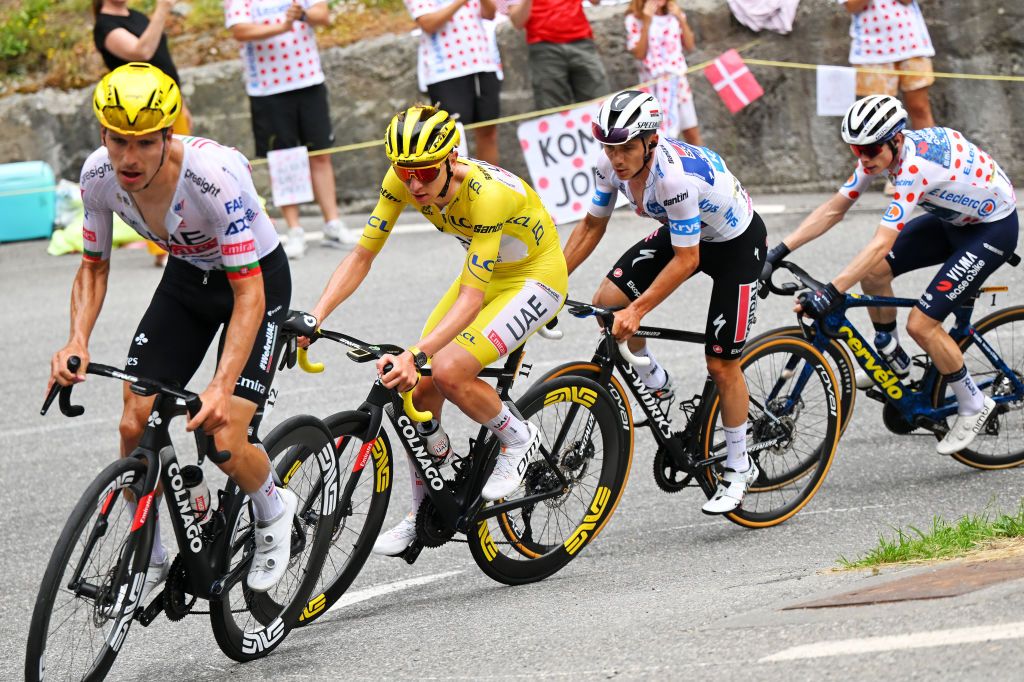
The Tour de France 2025 begins on 5 July and marks the 112th edition of cycling's flagship race. Raced entirely in France for the first time in five years, this really is a 'Tour de France'. The 21-stage race begins in Lille in the north before heading west through Normandy and Brittany and taking an anti-clockwise route to the far south, before heading back to its traditional finish line in Paris via the Alps and Jura mountains.
One for the climbers - as all modern Tours are - the 2025 Tour de France route incorporates five summit finishes and spans four mountain ranges - the Alps, Massif Central, Jura and Pyrenees. The riders will also endure a brutal mountainous time trial to the Peyragudes altiport as part of a total of 44km against the clock, and a hilly opening week in northern France, with the first summit finish coming 10 days in on Bastille Day
High points (literally) include the race's highest, Col de la Loze, which is tackled from the eastern approach for the first time, and Hautacam, two climbs which Jonas Vingegaard will relish. Mont Ventoux, the Puy de Sancy, Superbagnères and the Col du Tourmalet all feature, with the GC battle likely to be decided on the uppermost slopes in the second and third week of racing.
And after last year's Olympics-induced absence from Paris and final-day time trial in Nice it's back to standard procedure. Fifty years after the first finish on Paris' most iconic boulevard, the race returns to the famous Champs-Élysées for the usual champagne-sipping and sprint finish on the last stage.
The world's best riders will battle for victory, with 2024 winner Tadej Pogačar (UAE Team Emirates) taking on Jonas Vingegaard (Visma-Lease A Bike), Remco Evenepoel (Soudal-Quick Step) – the latter returning from injury – and Primož Roglič (Red-Bull-Bora-Hansgrohe).
The three-week event is the second in the trio of Grand Tours, coming after the Giro d'Italia and before the Vuelta a España.
Check out our in-depth page on the Tour de France 2025 route for everything you need to know about the 21 stages from Florence to Nice, and our analysis of the route and where it might be won or lost.
Tour de France 2025: Key details
| Date | 5 July 2024 - 27 July 2024 |
| Total distance | 3,320 kilometres (2,063 miles) |
| Number of stages | 21 |
| Start location | Lille, France |
| Finish location | Paris, France |
| UCI ranking | WorldTour |
| Edition | 112th |
| Total climbing / elevation gain | 51,550m |
| Leader's jersey colour | Yellow (Maillot Jaune) |
| Last winner | Tadej Pogačar (Slovenia) |
| TV coverage (UK) | Eurosport, Discovery+ |
| TV coverage (US) | NBC Sports, Peacock |
Tour de France 2025: The route
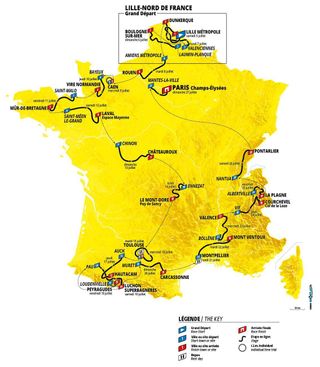
Tour de France 2025 route: Stage-by-stage
| Stage | Date | Start | Finish | Distance | Terrain |
|---|---|---|---|---|---|
| Stage one | 5 July | Lille | Lille | 185km | Flat |
| Stage two | 6 July | Lauwin-Planque | Boulogne-sur-Mer | 212km | Hilly |
| Stage three | 7 July | Valenciennes | Dunkerque | 178km | Flat |
| Stage four | 8 July | Amiens | Rouen | 173km | Hilly |
| Stage five | 9 July | Caen | Caen | 33km | ITT |
| Stage six | 10 July | Bayeux | Vire Normandie | 201km | Hilly |
| Stage seven | 11 July | Saint-Malo | Mûr-de-Bretagne Guerlédan | 194km | Hilly |
| Stage eight | 12 July | Saint-Méen-le-Grand | Laval Espace Mayenne | 174km | Flat |
| Stage nine | 13 July | Chinon | Châteauroux | 170km | Flat |
| Stage ten | 14 July | Ennezat | Le Monte-Dore Puy de Sancy | 163km | Mountains |
| Stage 11 | 16 July | Toulouse | Toulouse | 154km | Flat |
| Stage 12 | 17 July | Auch | Hautacam | 181km | Mountains |
| Stage 13 | 18 July | Loudenvielle | Peyragudes | 11km | ITT |
| Stage 14 | 19 July | Pau | Luchon-Superbagnères | 183km | Mountains |
| Stage 15 | 20 July | Muret | Carcassonnne | 169km | Hilly |
| Stage 16 | 22 July | Montpellier | Mont Ventoux | 172km | Mountains |
| Stage 17 | 23 July | Bollène | Valence | 161km | Flat |
| Stage 18 | 24 July | Vif | Courchevel Col de la Loze | 171km | Mountains |
| Stage 19 | 25 July | Albertville | La Plagne | 130km | Mountains |
| Stage 20 | 26 July | Nantua | Pontarlier | 185km | Hilly |
| Stage 21 | 27 July | Mantes-la-Ville | Paris Champs-Élysées | 120km | Flat |
Tour de France 2025: The teams
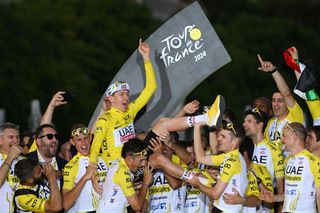
The Tour de France peloton consists of 22 teams of eight riders. This includes all 18 UCI WorldTour teams, as well as the two best-ranked UCI ProTeams, and two further squads invited by the organiser, ASO.
The teams racing the 2024 Tour de France are:
- Alpecin-Deceuninck
- Arkéa-B&B Hotels
- XDS Astana Team
- Bahrain-Victorious
- Red Bull-Bora-Hansgrohe
- Cofidis
- Decathlon AG2R La Mondiale
- Team Picnic PostNL
- EF Education-EasyPost
- Groupama-FDJ
- Ineos Grenadiers
- Jayco-AlUla
- Intermarché-Wanty
- Israel-Premier Tech
- Lidl-Trek
- Lotto
- Movistar
- Soudal Quick-Step
- TotalEnergies
- UAE Team Emirates-XRG
- Visma-Lease a Bike
Tour de France 2025: General classification riders
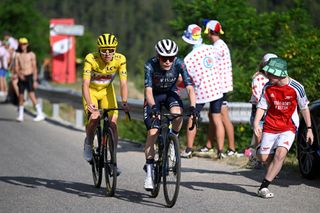
When it comes to potential yellow jersey winners, like last year, there are four riders to watch out for.
The quartet comprises 2024 winner and Triple Crown supremo Tadej Pogačar (UAE Team Emirates); Remco Evenepoel (Soudal-Quick Step), two-time champion Jonas Vingegaard (Visma-Lease A Bike), and Primož Roglič (Bora-Hansgrohe).
Pogačar will start as the favourite to win back-to-back Tours for the second time in his career, after an imperious reign in 2024 which saw him win - among many other races - the Giro d'Italia, Tour de France, and World Championships.
2022 and 2023 champion and last year's runner-up Vingegaard will likely be his biggest obstacle as the two go head-to-head once more, is the only rider over whom hangs a significant question mark for the race.
Evenepoel finished third and claimed the best young rider's jersey in his Tour de France debut in 2024, and has publicly stated his aim to compete with Vingegaard and Pogačar in 2024. The 2022 Vuelta champion will eye taking the yellow jersey on stage five's flat ITT and is another strong contender for a podium place - as is Roglič, if he can break his Tour curse. The Slovenian now has four Vuelta titles and one Giro crown but has suffered years of misfortune, including crashes and injuries, at the sport's biggest race.
After coming 5th overall and taking a stage win in his Tour debut in 2023, Carlos Rodríguez will lead Ineos Grenadiers.
Tour de France 2024: Sprinters
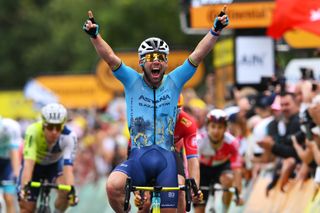
It's going to be another tough year for the sprinters, with seven stages designated as 'flat' but none of them actually completely flat.
Jasper Philipsen of Alpecin-Deceuninck and Biniam Girmay (Intermarché-Wanty) starred last year, each winning three stages and Girmay making history as the first black African to win a Tour de France stage. The Eritrean won the green jersey, becoming the first African to win any jersey at the Tour, and his ability on punchy sprint finishes could see him ride into the history books once again in 2025.
History was also made by Manx sprinter Mark Cavendish, riding in his 15th Tour after he postponed retirement to target the Tour win record, which he previously shared with Eddy Merckx. He won stage five's sprint until Saint Vulbas, a nondescript industrial town which has now become inscribed into sporting legend. Cavendish retired for good at the end of 2024, bringing an end to a long and storied career.
Other sprinters likely to challenge for stage wins include Fabio Jakobsen (Picnic-PostNL), Dylan Groenewegen (Jayco-AlUla), Tim Merlier (Soudal Quick-Step) and Jonathan Milan (Lidl-Trek).
Tour de France 2025: On TV
The race will be live-streamed on Discovery+ and Eurosport in the UK and in Europe. Subscription costs are £6.99/month or $8.99/month, and £39.99 or $49.99 for a year. The race is also streamed, for the final time in 2025, on ITV4 in the UK, and is free to view.
A Flobikes annual subscription will cost you $209.99 if you want to watch in Canada, while in the USA NBC Sports via Peacock Premium ($4.99 per month) will show the race. Australians can can watch the Tour for free on SBS on Demand.
And, of course, if you want to watch your local stream from anywhere in the world you'll need a VPN from a trusted company like ExpressVPN.
Tour de France: The jerseys
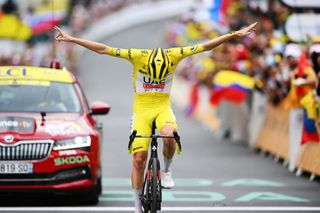
The Tour de France jerseys and classifications are yellow for the overall leader, green for the leader in the points standings, polka-dot for the mountain classification, and white for the best young rider.
Along with the jersey prizes, there is an award for the most combative rider of each stage, with the winner wearing a red number on the following day. This is awarded each day, with a 'Super Combativity' award decided by a jury at the end of the race for the most active rider throughout the entire event.
There is also a team classification where the time of the first three riders from each team is put together to create a single time. This is then done in a similar way as the individual general classification.
In addition, there are plenty of bonus seconds up for grabs at the race. There are ten, six and four bonus seconds available at the end of each stage for the first three riders, as well as bonus sprints that are dotted throughout the race on key climbs to try and make the racing more entertaining for spectators.
Of course, there's also prize money up for grabs. For winning the 2023 edition of the race, Jonas Vingegaard collected €535,220 (£463,100), a sum which is customarily shared out among the team's riders and staff.
Tour de France: recent winners
- 2012: Bradley Wiggins (GBr)
- 2013: Chris Froome (GBr)
- 2014: Vincenzo Nibali (Ita)
- 2015: Chris Froome (GBr)
- 2016: Chris Froome (GBr)
- 2017: Chris Froome (GBr)
- 2018: Geraint Thomas (GBr)
- 2019: Egan Bernal (Col)
- 2020: Tadej Pogačar (Slo)
- 2021: Tadej Pogačar (Slo)
- 2022: Jonas Vingegaard (Den)
- 2023: Jonas Vingegaard (Den)
- 2024: Tadej Pogačar (Slo)
Tour de France FAQ
How does the Tour de France work?
The Tour de France is one of a trio of races that are three weeks long, known as the Grand Tours, alongside the Giro d'Italia and the Vuelta a España. The Tour is the best known and arguably the most prestigious.
It is the second of the three races in the calendar with the Giro taking place in May, the Tour usually in July, and the Vuelta in August and September.
The Tour, like all Grand Tours, takes on varying terrain with flat days for sprinters, hilly days for puncheurs and mountains for the climbers and GC riders, along with time trials, so that a winner of the race has to be able to perform on all types of road.
The main prize in the race, known as the general classification, is based on time with the overall leader wearing the yellow jersey. The race leader and eventual winner is the rider who has the lowest accumulated time over the 21 days of racing. Riders can win the Tour de France without winning a stage, as Chris Froome did in 2017. Time bonuses of 10, six, and four seconds are given to stage winners though, creating incentive for those general classification riders to chase individual victories and lower their overall time.
In 2020 it took race winner Tadej Pogačar 87 hours 20 minutes and 5 seconds to complete the race with the second-place rider overall 59 seconds slower. That continues all the way down to the last place rider, which was Roger Kluge (Lotto-Soudal) who finished 6 hours 7 minutes and 2 seconds behind.
The white best young rider's jersey is worked out in the same way but only riders under the age of 26 are eligible for the jersey.
The polka-dot mountains jersey and the green points jersey are based on a points system and not time. The only reason time would come into account would be if riders are tied on points, then it would go to who is the best placed in the general classification.
The team classification is based on the general classification times of the first three riders of a team on each stage. The time of those three riders is added up and put onto their team's time, creating a GC list much like in the individual classifications. The leading team gets to wear yellow numbers and helmets on each stage.
The final classification available is the combativity prize. This is decided by a race jury or, in more recent years, Twitter. This takes place just before the end of each stage and often goes to a rider from the breakaway who has put in a daring performance or attempted to liven up the stage by attacking. The winner of the combativity award gets to wear a special red race number on the following day's stage.
There is a final prize added to this with the Super Combativity prize being awarded on the podium in Paris. This is decided in a similar fashion to pick out the most aggressive, entertaining, and daring rider of the whole three weeks. Again, usually going to a rider who has featured regularly in the breakaway.
Stage winners do not wear anything special the day after apart from getting a small yellow jersey to stick on their number on their bike, this can be replaced if they win multiple stages.
Teams used to come to the race with nine riders but the UCI, cycling's governing body, decided that nine riders from each team was too dangerous and dropped it to eight, however more teams now take part.
How long is the Tour de France?
The Tour de France takes place over 23 days with 21 of them being race days. The riders get two days of resting; they usually fall on the second and third Monday of the race, but this year the first rest day takes place a day later than normal to ensure racing on Bastille Day.
Road stages can range from anything around 100km to something approaching 250km, sometimes more. This year the shortest road stage is stage 21 at 120km, from Mantes-la-Ville to Paris, with the longest being 212km on stage two, from Lauwin-Planque to Boulogne-sur-Mer.
Road stages often take around four to five hours with the longer days sometimes nudging over seven hours.
Time trials are always much shorter. Team time trials have long since gone out of fashion in the world of road racing so individual time trials are the main focus these days.
In 2025, the Tour has two individual time trials for the riders to tackle. The first is one for the specialists against the clock, 33km on stage five starting and finishing in Caen. The second is just 11km but follows an intriguing mountainous route from Loudenvielle to Peyragudes.
When does the Tour de France start?
The 2025 Tour de France starts on 5 July in Lille, northern France, with a road stage. It's the first time in five years that the Tour will take place exclusively within France. The race finishes in Paris three weeks later, with the traditional procession for the general classification riders and full-blooded sprint for the fast men on the iconic Champs-Élysées.
The 2025 edition of the race runs from 5-27 July, covering 21 stages.
Latest
-
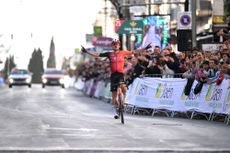
'They’re racing with their hearts again' - Robbie McEwen on Ineos Grenadiers' bright start to 2025
The British squad have already won four times in 2025
By Tom Thewlis Published
-
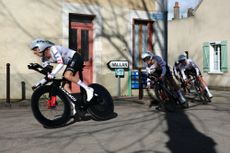
Tour de France 2026 to start with Barcelona team time trial
TTT will use new timing rules first seen in 2023 Paris-Nice
By Tom Thewlis Published
-
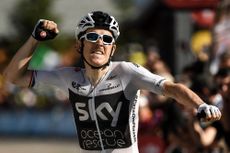
'There's no bull****, that's what I've always liked' - Geraint Thomas's first BC coach Rod Ellingworth on the retiring Welshman
The 2018 Tour de France winner will step away from professional cycling at the end of the season
By Tom Thewlis Published
-

'I never really had a Plan B' - Dan Martin on his cycling career and getting into running after retirement
The two-time Tour de France stage winner takes part in Cycling Weekly’s Q&A
By Tom Thewlis Published
-
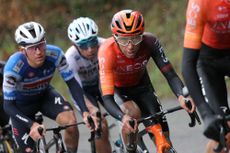
'It is time to change goals' - Egan Bernal's coach confirms Ineos Grenadiers exit
'I want to thank all the cyclists I have had the opportunity to coach over the past ten years' Xabier Artetxe says in LinkedIn post
By Tom Thewlis Published
-
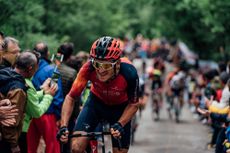
Geraint Thomas represented 'all the best things about the golden era of British Cycling' - tributes paid to retiring rider
Former and current teammates and other figures from within pro cycling react to the Welshman’s decision to retire at the end of the current season
By Tom Thewlis Published
-
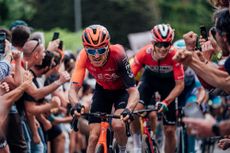
'You can’t keep doing it forever' - Geraint Thomas confirms retirement at end of 2025
'It would be nice to go to the Tour one more time' Welshman says
By Tom Thewlis Published
-

'I'm doing 1,000km more than Lachlan Morton' - Cycling influencer to ride every stage of the 2025 Tour de France
Amy Hudson plans to ride the entire Tour route, including the transfers, totalling 6,300km
By Tom Davidson Published
-
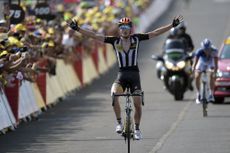
'A stage win in the Tour de France really changed my profile': Steve Cummings on working as a chef, idolising Michele Bartoli, and playing football like Trent Alexander-Arnold
Jayco-AlUla Sports Director discusses his most significant career victory and how he got into cycling
By Tom Thewlis Published
